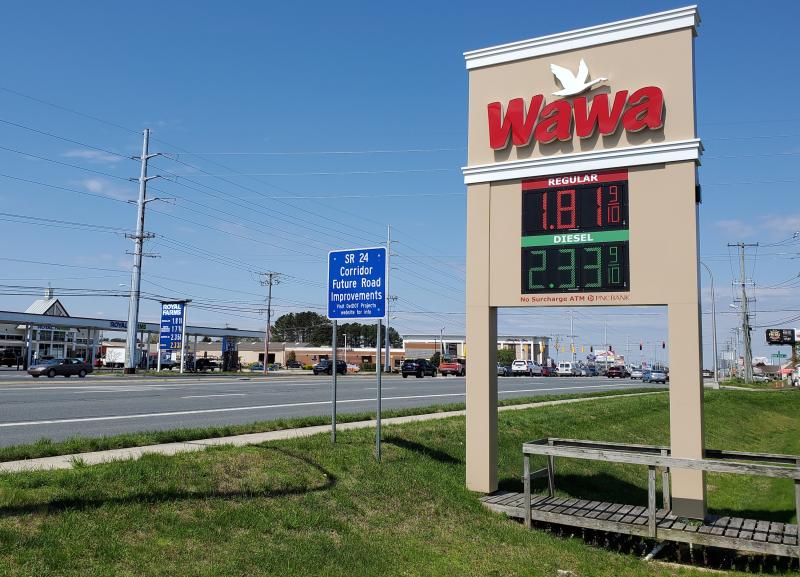Business shutdowns and stay-at-home orders worldwide have sent gas prices as low as they’ve been in decades.
Gasoline prices in Delaware, and across the country, have been dropping for weeks, and because of uncertainties around COVID-19 and a sudden increase in crude oil supply, the U.S. Energy Information Administration is predicting the average price per gallon could be as low as $1.58 during this summer driving season.
The latest Energy Information Administration weekly report puts demand at a nearly 52-year low. At a time when gasoline consumption typically begins to increase, toward its annual peak in summer, officials say substantially less economic and business activity, stay-at-home orders and rapid increases in working remotely from home will dramatically reduce gasoline demand.
“The strong reduction in demand, combined with increased supply, is likely to significantly reduce gasoline prices in the interim,” said the EIA. “However, despite these lower prices, many consumers will be driving significantly less than one might expect in such a low price environment.”
“The lower forecast gasoline prices reflect lower forecast crude oil prices and significantly lower gasoline demand in the second quarter of 2020, driven by COVID-19 travel restrictions and disruptions to domestic economic activity,” said the administration’s April 7 short-term energy outlook.
Specifically to Delaware, as of April 13, AAA Mid-Atlantic is reporting an average price of $1.85 a gallon in Milford and Seaford; $1.83 a gallon in Dover; and $1.86 a gallon in Wilmington and Newark. Those prices represent as much as 77 cents less per gallon than one year ago.
AAA Mid-Atlantic also said that last week, prices for crude oil hovered between $22 and $26 per barrel, more than $35 less than one year ago.
“Gasoline demand continues to decline as many people adhere to stay at home orders,” said Jana L. Tidwell, manager of Public and Government Affairs for AAA Mid-Atlantic, in a press release. “Despite recent crude oil volatility and this week’s [Organization of the Petroleum Exporting Countries] agreement to reduce production, any potential increases in crude oil prices are not likely to have an impact on gas prices in the near term.”
As a comparison, during the height of the 2008 recession, per-gallon gas prices reached an all-time high in Delaware on July 17 of $4.11.
Diesel fuel markets more stable
While COVID-19 uncertainties are driving down gasoline prices, the Energy Information Administration is anticipating impacts on diesel fuel markets will be less severe.
The administration’s Summer Fuels Outlook, published earlier this month, states diesel fuel consumption is driven less by consumers and more by general economic and manufacturing activity.
“Although economic and manufacturing activity are still expected to drop sharply in the second quarter of 2020 compared with earlier forecasts, EIA assumes some increase in diesel fuel demand will occur as a result of more long-haul trucking distribution as well as an increase in last-mile deliveries of goods and services to consumers who are largely staying at home,” the report finds.
Chris Flood has been working for the Cape Gazette since early 2014. He currently covers Rehoboth Beach and Henlopen Acres, but has also covered Dewey Beach and the state government. He covers environmental stories, business stories and random stories on subjects he finds interesting, and he also writes a column called Choppin’ Wood that runs every other week. He’s a graduate of the University of Maine and the Landing School of Boat Building & Design.




















































